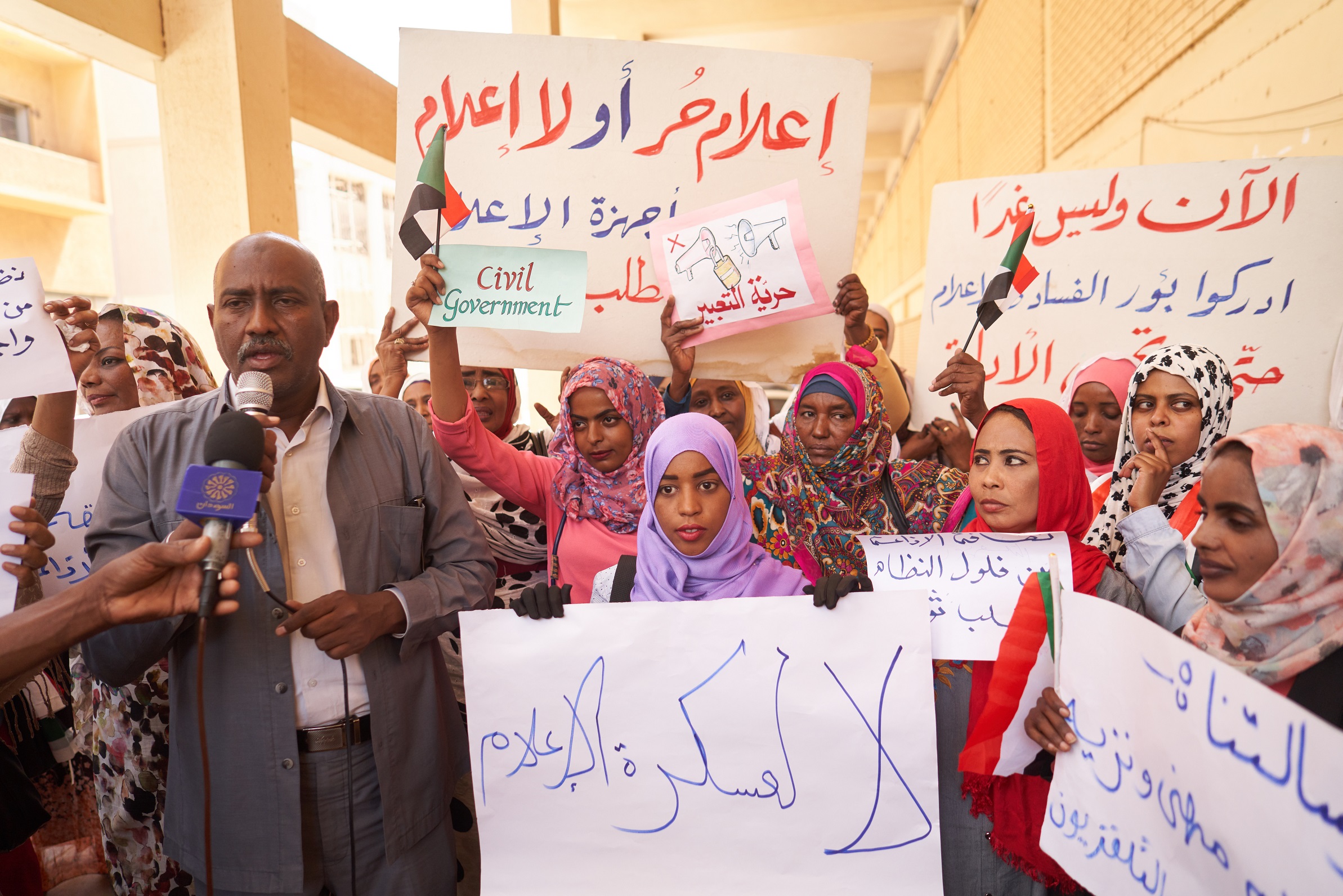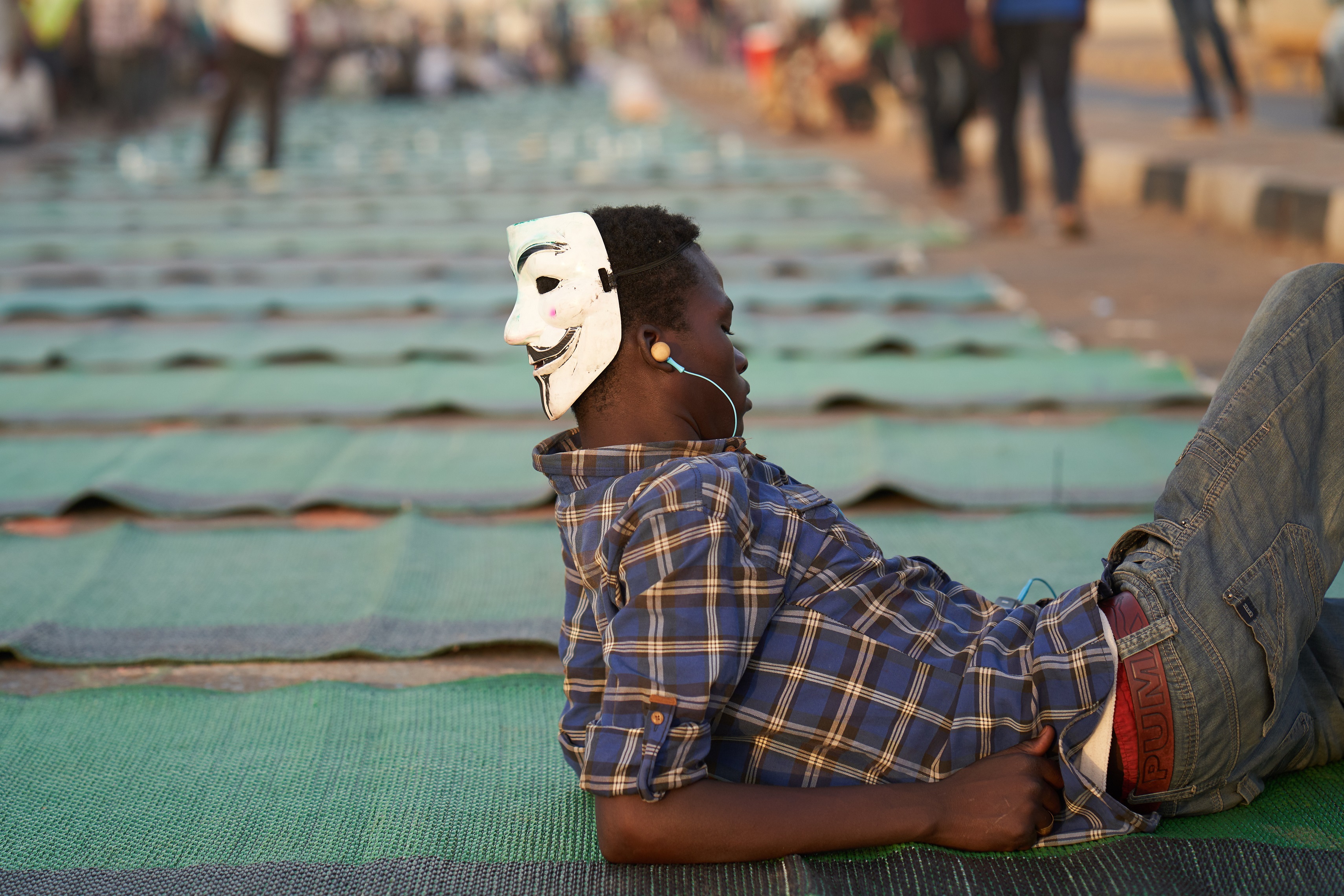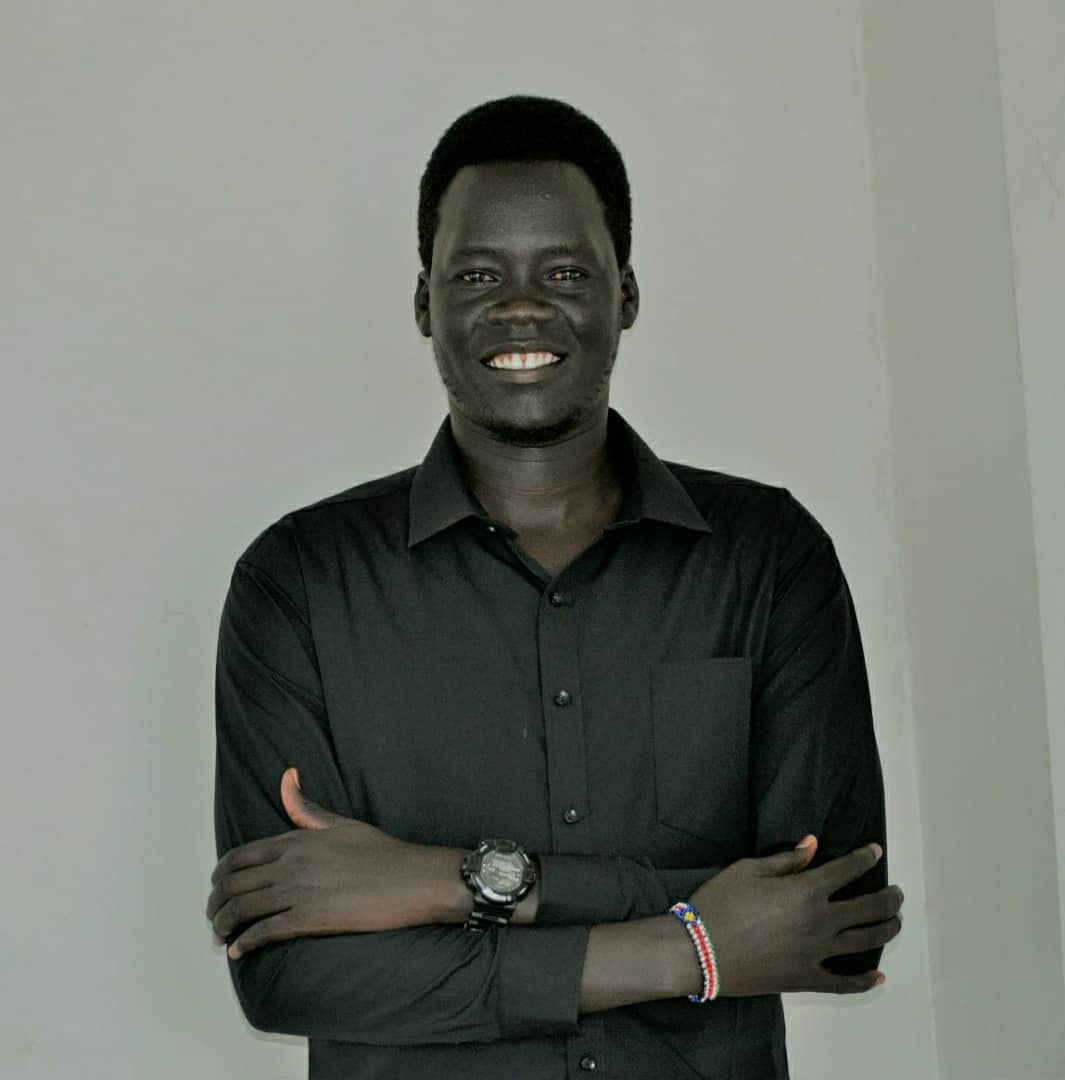بعد عشر سنوات على قيام جمهورية جنوب السودان، وما يقارب خمسة عقود على إنشاء جامعة جوبا، الصرح التعليمي الأول في البلاد، جاء افتتاح مدرسة "الصحافة، الإعلام ودراسات الاتصال" بالجامعة، ليشكل إضافة نوعية مهمة لمؤسسات ومراكز التكوين والتدريب الأكاديمي والإعلامي بهدف تأهيل كوادر مدربة ومشبعة بالمعارف النظرية والتطبيقية وملمة بأحدث المهارات التقنية في مجال الصحافة والإعلام.
رحلة التأسيس
بدأ التخطيط لتأسيس المدرسة منذ العام 2010، قبل عام واحد من استقلال البلاد، نتيجة لازدياد الحاجة للمعرفة الأكاديمية في مجال دراسات الإعلام والاتصال، وتزايد إقبال الطلبة لدراسة الإعلام، ما دفع المسؤولين إلى اتخاذ خطوات عملية لتطبيق المشروع على أرض الواقع.
يقول نائب عميد المدرسة الدكتور شابلن كارا يوكوجو: "بدأت فكرة تأسيس مدرسة منفصلة للإعلام سنة 2010، وكنت آنذاك رئيسًا لقسم الاتصال التنموي بمدرسة دراسات المجتمع والتنمية الريفية، وكان هناك قسمان في الجامعة يدرسان الإعلام، هما قسم الاتصال التنموي، وقسم الإعلام بمدرسة الآداب والعلوم الإنسانية. وعندما رأينا أن المقرر الذي يتم تدريسه مشابه، فكرنا في دمج القسمين وإنشاء مدرسة منفصلة للإعلام، وتقدمنا بمشروع تأسيس مدرسة الإعلام إلى مدير الجامعة وقتها، البروفيسور أقري أباتي، عبر مكتب العميد، وقد وافق على ذلك. وكان التحدي الأبرز هو قلة الكادر البشري من الأساتذة والمحاضرين والمعاونين، إذ كنا اثنين فقط في القسم عند البداية".
وجاء التأسيس الرسمي للمدرسة في اجتماع مجلس الأساتذة (السند) رقم 217، المنعقد في أغسطس/آب 2019، حيث تقرر إنشاء مدرسة "الصحافة، الإعلام ودراسات الاتصال" بعد دمج قسم الإعلام بمدرسة الآداب والعلوم الإنسانية، وقسم الاتصال التنموي بمدرسة دراسات المجتمع والتنمية الريفية. صادق عليه مجلس إدارة الجامعة، وبدأ القبول والتدريس بها خلال العام الدراسي 2019 - 2020، لتصبح المدرسة أول مدرسة إعلام مسجلة بالدولة الفتية، والوحيدة التي تمنح إجازة في تخصص الصحافة والدراسات الإعلامية على مستوى الجامعات العامة.
يضم المستوى الأول حاليًا 174 طالبا وطالبة، وتهدف المدرسة إلى توفير المعارف النظرية والتطبيقية للطلبة المقبلين على العمل الميداني، وإعداد إعلاميي المستقبل، إلى جانب تدريب وتأهيل المشتغلين في حقل الإعلام.
وعلى الرغم من توفر الرغبة والدافع لدى المسؤولين المشرفين على المدرسة الجديدة، إلا أن هنالك تحديات كبيرة تقف أمام تطورها تتعلق بالبنية التحتية، وهيئة التدريس، وتحديث المناهج، ما يجعل مهمة التطوير والمواكبة عسيرة وشاقة، وتتطلب تضافر الجهود لخدمة مهنة الصحافة في البلد الفتي.

تحدي البنية التحتية
يكمن أول التحديات التي تواجه المدرسة في ضعف البنية التحتية؛ إذ تعاني من قلة المكاتب، وقاعات الدراسة، والاستديوهات، والأدوات المستخدمة في العملية التعليمية، وهو تحدٍ تشترك فيه أقسام الجامعة المختلفة. وبحسب رئيس قسم الإعلام بالإنابة بمدرسة الآداب والعلوم الإنسانية، قبريال كير أموي في تصريح لمجلة الصحافة، لم يبدأ استخدام الإذاعة الداخلية الموجودة أو أستوديو البث بسبب عدم انتهاء التجهيزات الفنية، حيث لم يتم تركيب برج الإرسال الهوائي الذي لم يتوفر بعد، كما أن هناك نقصًا في الأدوات والمعدات التقنية؛ مثل أجهزة الحاسوب، ومعدات الإنتاج، بالإضافة إلى عدم توفر خدمة الإنترنت في الحرم الجامعي لأغراض التعلم.
يقول نائب العميد الدكتور شابلن كارا، إنهم بصدد تقديم تصور لمدير الجامعة يتضمن الميزانية المقترحة لتوفير برج الإرسال الهوائي، مشيرا إلى أنه فور الانتهاء من هذه المرحلة وتركيب المعدات التقنية، سيتمكن الطلبة من بدء استخدام الإذاعة الداخلية للجامعة لأغراض التدريب والتعلم.
وأضاف في نفس السياق: "نعاني أيضًا من عدم وجود مكاتب كافية، ونحن نستخدم حاليًا المبنى الخاص بالإذاعة كمكاتب للإدارة، وقد وعد مدير الجامعة بإرسال المهندسين لبدء التخطيط لبناء مكاتب إضافية، وأيضًا ما زلنا نبحث في إطار خطتنا المستقبلية طويلة الأمد، عن شراكات مع المانحين لتشييد المبنى الرئيسي للمدرسة".
تحدي هيئة التدريس
تضم المدرسة عددا قليلا من الكوادر البشرية من الأساتذة والمحاضرين، حيث لا يتجاوز عددهم 14 محاضرا. وفي إطار خطة الإدارة لزيادة أعضاء هيئة التدريس، تم إرسال سبعة من مساعدي أعضاء هيئة التدريس إلى جامعة ماكريري الأوغندية لدراسة الماجستير، وبعد انتهاء فترة الدراسة عادوا جميعًا لمزاولة عملهم في المدرسة. وكذلك تم إرسال عدد آخر إلى دول مختلفة حول العالم، من ضمنها أمريكا والصين. أتم بعضهم الدراسة وعادوا، بينما ما زالت المدرسة بانتظار أفواج أخرى فور انتهاء برامجهم الدراسية.

تحدي تحديث وتطوير المناهج
على مستوى المناهج، قامت المدرسة بإعداد المنهج الجديد الذي تمت إجازته بواسطة مجلس الأساتذة، وهو المستخدم حاليًا في عملية التدريس. ولكن في ظل التطور المتسارع في تخصص ومهنة الإعلام وظهور أنماط جديدة، خاصة ما يعرف بـ "الإعلام الجديد" المرتبط بشبكة الإنترنت، تحتاج المقررات الدراسية إلى المراجعة والتحديث المستمرين لتلائم سوق العمل، خاصة أن طلاب كليات الإعلام يواجهون تحدي عدم انسجام ما يدرسونه في الجامعات مع سوق العمل.
فإلى جانب المقررات القديمة التي تركز على تدريس تأريخ الإعلام، وأساليب التحرير الصحفي والإعلان والتسويق والعلاقات العامة، سيتوجب على المدرسة تطوير المناهج لتشمل التخصصات الجديدة في الإعلام الرقمي مثل صحافة الموبايل، وصحافة البيانات، والبودكاست وإنتاج المحتوى لمنصات التواصل الاجتماعي وغيرها.
في هذا السياق، يقول الدكتور شابلن كارا إن المدرسة وضعت في الاعتبار التطورات الجديدة في مجال الإعلام والتوجه العام نحو الرقمنة، وحرصت على تطوير المنهج التدريسي بالتعاون مع الشركاء النرويجيين لتتضمن المعارف التكنولوجية، حتى يتسنى للطلاب التعلم والتعرف على أحدث الاتجاهات في مجال الإعلام والاتصال.
ختامًا، يُنتظر أن تلعب مدرسة الصحافة والإعلام الجديدة أدوارًا محورية في عمليات التكوين والتدريب الأكاديمي والصحفي، وتخريج كوادر بشرية مؤهلة تأخذ المبادرة في مجال الصحافة، وكذلك في جانب إنتاج المعارف النظرية والبحث العلمي في إطار تطوير قطاع الإعلام والاتصال في جنوب السودان. وهي مهمة تحتاج إلى دعم الدولة والمجتمع حتى تستطيع المدرسة تنفيذ أنشطتها وتحقيق أهدافها ورؤيتها.








































